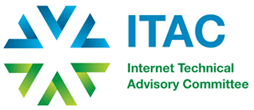By Karen McCabe, Senior Director Technology Policy and International Affairs, IEEE Standards Association
The relationship between open information communications technologies (ICTs) and an open Internet has enabled transformational and impactful developments. It has evolved the Internet to a universal platform supporting unprecedented connection among world citizens—providing a powerful means for collective awareness, information sharing and problem solving. It has given rise to increasing levels of connectivity that now go beyond the Internet or a network of networks to the Internet of Things and people, increasingly generating unlimited opportunities for innovation and economic advancement.
The success of the Internet is dependent upon the way it has been developed. As noted in the Internet Society’s “Internet Invariants” (http://www.internetsociety.org/internet-invariants-what-really-matters) paper, this is explained as: “The Internet requires some basic agreements and social behavior – between technologies and between humans,” after which the paper enumerates “interoperability and mutual agreement,” “collaboration,” and “reusable [technology] building blocks.” All these resonate with the principles in OpenStand (open-stand.org) paradigm, and carry over into ICT development—with the characteristic of open being central.
The Internet and the paradigm that enabled its success are rooted in openness, fueled by open ICT and standards development with a focus on technical excellence through collaboration of many from all around the globe. The ICT ecosystem provides a ubiquitous infrastructure and innovation platform that facilitates economic growth, technology advancement and social interaction throughout the entire economy. Economic growth depends increasingly on open ICT and open standards to help ensure interoperability by enabling cross-boundary information sharing and transfer. Interoperability plays a key role across a diverse collection of ICT applications, including mobile communications, web services, e-commerce, e-health, smart energy and smart urbanization to name a few. Interoperability promotes innovation via a meaningful exchange of information. Increased levels of ICT interoperability among systems, applications and components tend to be good for innovation and competition. Increased ICT interoperability fosters innovation in goods and services as well as processes, which in turn leads to technological advantage.
The ICT ecosystem is a unique combination of complex and dynamic relationships, where competitors collaborate to push the envelope of innovation. The power of the open ICT ecosystem comes from the virtuous cycle that it can sets in motion. As sharing and collaboration are established as norms, the benefits of sharing increase. Open ICT and standards lower the barrier to innovation, multiplies the sources of innovative ideas and effort and empowers a larger community to address challenges and create new solutions. Open ICT that embodies transparency and inclusiveness, and that is borderless, is important now more than ever to unlock creativity and unleash collaboration where all stakeholders work to leverage strengths, solve problems and innovate for economic benefit and positive societal impact.
_______________________________
Karen McCabe is Senior Director of Strategic Marketing and Product Development at the IEEE Standards Association, where she leads the global marketing, communications and community engagement efforts for IEEE standards and consensus-building programs and activities and leads standards product development and publishing toward the fulfillment of the IEEE-SA’s strategic goals and mission of enabling and promoting the collaborative application of technical knowledge to advance economic and social well-being.

